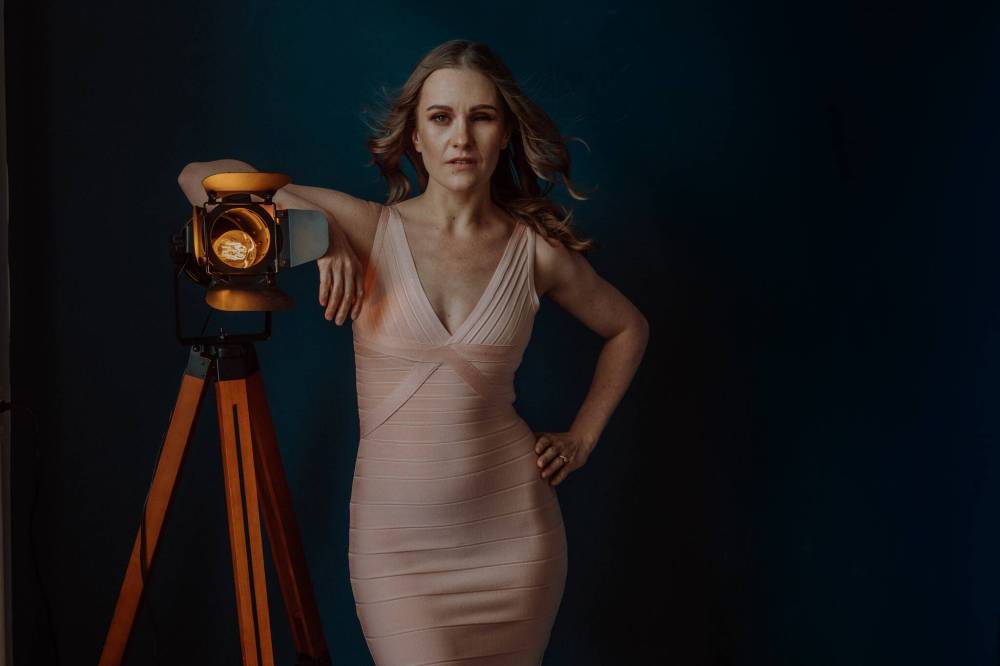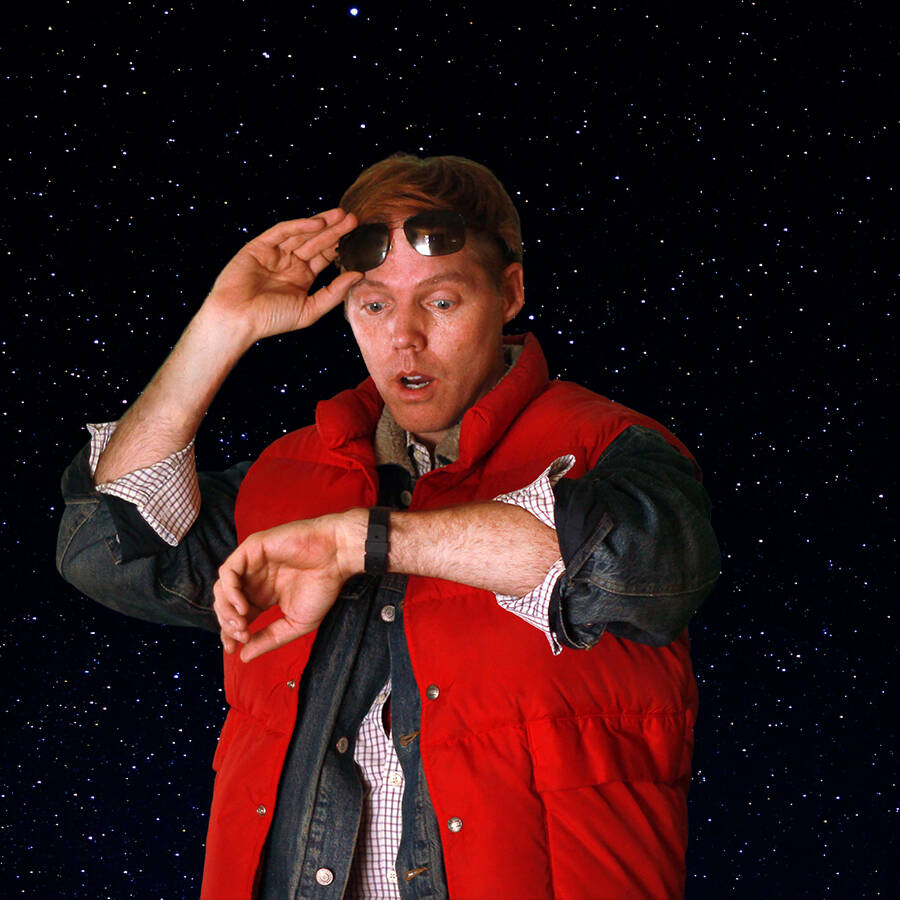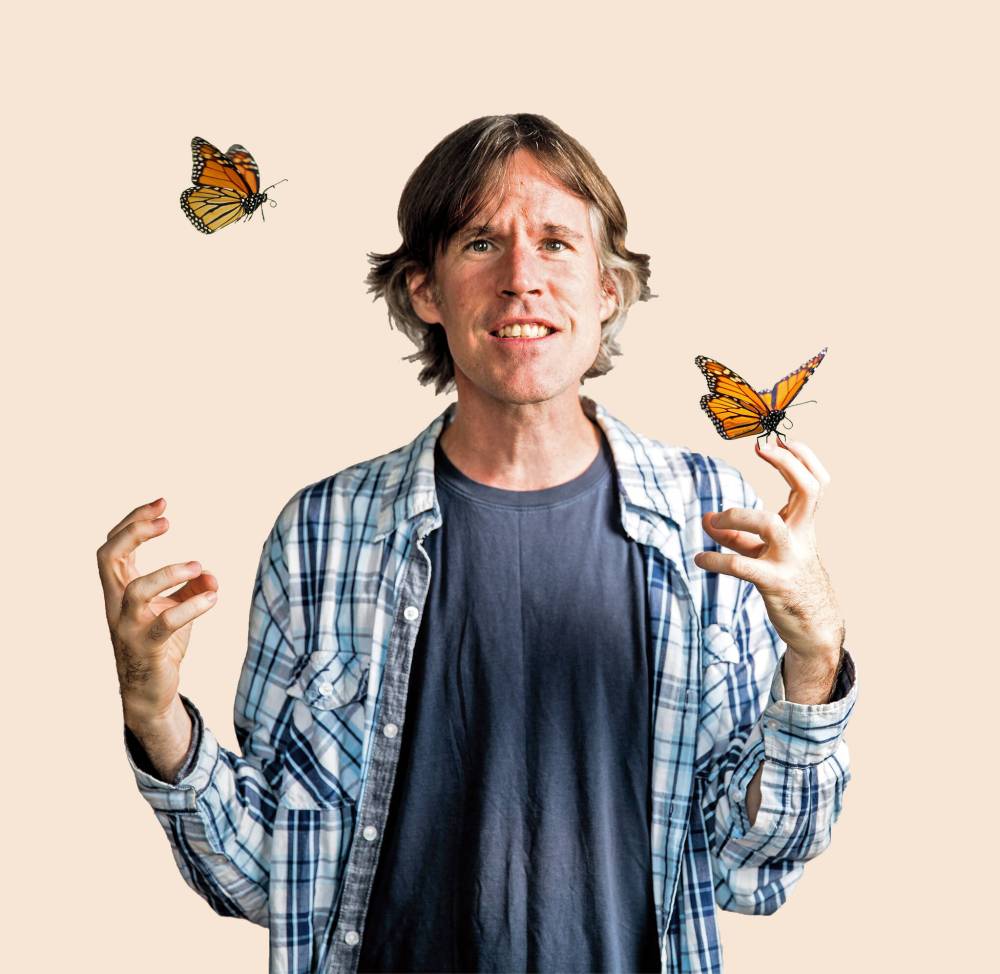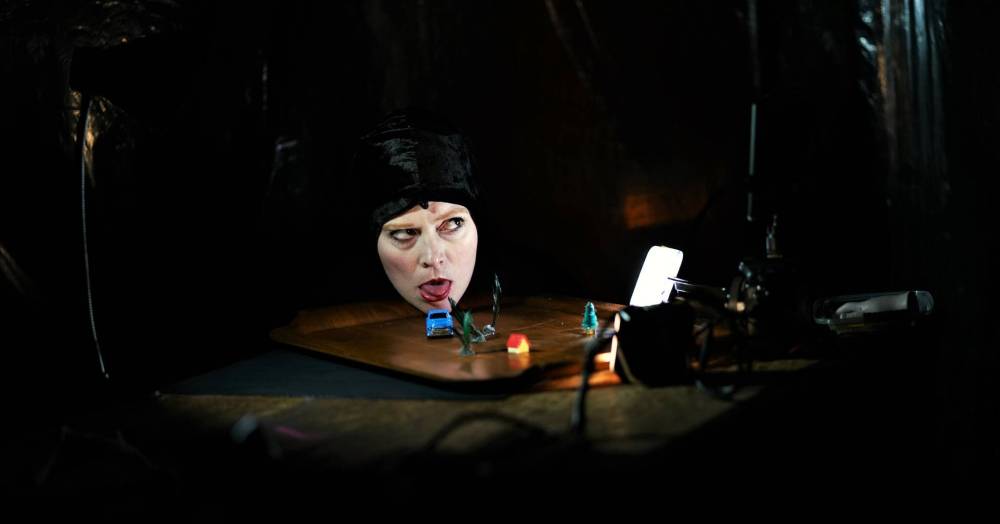Back to life, back to live Theatre performers dish on restarting their fringe engines after a long hiatus
Read this article for free:
or
Already have an account? Log in here »
To continue reading, please subscribe:
Monthly Digital Subscription
$0 for the first 4 weeks*
- Enjoy unlimited reading on winnipegfreepress.com
- Read the E-Edition, our digital replica newspaper
- Access News Break, our award-winning app
- Play interactive puzzles
*No charge for 4 weeks then price increases to the regular rate of $19.00 plus GST every four weeks. Offer available to new and qualified returning subscribers only. Cancel any time.
Monthly Digital Subscription
$4.75/week*
- Enjoy unlimited reading on winnipegfreepress.com
- Read the E-Edition, our digital replica newspaper
- Access News Break, our award-winning app
- Play interactive puzzles
*Billed as $19 plus GST every four weeks. Cancel any time.
To continue reading, please subscribe:
Add Free Press access to your Brandon Sun subscription for only an additional
$1 for the first 4 weeks*
*Your next subscription payment will increase by $1.00 and you will be charged $16.99 plus GST for four weeks. After four weeks, your payment will increase to $23.99 plus GST every four weeks.
Read unlimited articles for free today:
or
Already have an account? Log in here »
Hey there, time traveller!
This article was published 12/07/2022 (1247 days ago), so information in it may no longer be current.
It only feels like it’s been forever.
In fact, we’ve just missed out on two live, in-person editions of the Winnipeg Fringe Theatre Festival. As we return to something that looks like a normal fringe, consider the artists who were deprived of their main source of work: performing at fringe festivals here and around the world.
We reached out to a number of veterans — and some relative newbies — to answer some questions about what it’s been like for artists to cool their creative jets for two years and then return to live performance.
The cast list includes:

Stéphanie Morin-Robert (Black Eye, Venue 16), a Timmins, Ont.-born, Winnipeg-based actor whose previous shows include Blindside and The Merkin Sisters
Martin Dockery (The Stakeout and The Sex Lives of Butterflies, both at Venue 5), a New York playwright-storyteller (Wanderlust) who’s a regular on the Best of Fest list
Keith Alessi (Tomatoes Tried To Kill Me But Banjos Saved My Life, Venue 17), the former CEO of Westmoreland Coal whose cancer diagnosis inspired him to take up the banjo (100 per cent of his performance fees go to cancer and theatre charities)
Ingrid Hansen (Epidermis Circus, Venue 17), a Canadian puppeteer and co-artistic director of SNAFU theatre troupe
Shelby Bond (One Man Back to the Future, Venue 6), a Los Angeles-based actor who’s been a familiar face at the fest since his days with genre-parody troupe Sound & Fury
Melanie Gall (A Toast to Prohibition, Venue 6; and Everleigh and the Magic Book, kids venue), an Alberta-born vocalist and performer who has written and toured several musical shows, and hosts The Savvy Girls knitting podcast.
Abby Falvo (Meagre Joys, Venue 15, with Danielle Kayahara and Lar Simms), a Winnipeg standup comedian who hosts the monthly Party Mix! show at Wee Johnny’s.
On how the pandemic affected their fringe-reliant careers:
Bond: My whole world was shattered. This is not just a career; it’s who I am. I believe many artists feel that way, that it’s impossible to separate our job from our heart and soul. I tour all year long, live for connecting people and making them laugh. So, no audience, no outlet, no income.

Gall: When the pandemic hit, I was rehearsing my new show, A Toast to Prohibition, right in time for summer of 2020, the 100th anniversary of the start of Prohibition. It was the perfect marketing angle.
I was actually on tour at the time. It had taken a year to set up this tour and it fell apart overnight. Instead of flying from India to Nepal, I ended up catching one of the last planes back to Canada, where I spent the next two years living with my mum in Alberta and watching everything I’d dedicated my life to build essentially fall apart.
It was both incredibly disheartening and so, so strange to be back in the childhood bedroom where I’d once sat in the same chair and dreamed of building a performance career that took me around the world. And I was back in that chair, dreaming of that once again. It’s as if I’d lost the person I’d become, and the life I’d worked and sacrificed to build.
Morin-Robert: I had been touring full time doing fringe festivals and performing at regional theatres with our first-born, Olive, in tow and planned to keep doing that with our second child, Jack, who was born moments before the pandemic hit.
With over 250 shows cancelled or rebooked, we (Morin-Robert is married to Alastair Knowles of fringe favourites James and Jamesy) decided to move to Winnipeg to be closer to family, knowing we could really use the support. At the time, I was actually relieved that I didn’t have to hit the road running with two babies in tow.

Dockery: At the start of the pandemic, I had four months of festivals lined up, and it was surreal to see them all evaporate one by one. It challenged my sense of self. If I’m not someone who is creating shows, then what am I doing?
Thank goodness for the responsibility of taking care of my daughter. She was one when the pandemic began. She turned two. And then three. I spent every day with her, something I deeply enjoyed. Without the pandemic and the cessation it brought to touring, I wouldn’t have had such a special couple of years with her.
Falvo: During the pandemic, we had to deal with a pivot to performing over apps such as Zoom. For live comedy, there’s an exchange you have with your audience where they’re feeding off of your energy, and you’re absorbing theirs. Even if you have a good show (online), you still don’t get that charge. It also feels less rewarding after a show when you turn off your laptop and realize you’re sitting alone in your kitchen instead of out at a venue with your peers.
Hansen: I ended up spending most of the pandemic working on TV puppet shows with Sesame Workshop, the Miss Persona show on Treehouse and a new Fraggle Rock reboot with the Jim Henson Company, filmed in Calgary. And now my new fringe show Epidermis Circus uses those television puppetry skills, as I perform small, intimate puppetry live on stage for a camera that projects the image onto a huge screen behind me.
On getting back into the fringe groove:
Morin-Robert: My first tour back on the road was scary. I didn’t really know if I still wanted that type of life because my reality had changed so much and I really got comfortable with it being that way.

But a couple of panic attacks in… once I got up on stage, it really did feel like it was just a matter of getting back on the bicycle, so to speak.
Bond: Starting up again was a bit like being a caveman, peeking out at the light after two years of painting on the walls.
On the pandemic allowing a creative resurgence:
Morin-Robert: It pushed me into standup comedy. (Black Eye is a standup show.) It got me writing again. It forced me to look after my mental health and really nest with my growing family. It made me realize: Yes, this is what I was to be doing with my life and I’m ready to shift however I need to… to make it work.
Bond: I dove into online performance, building a home video studio and training myself to shoot, edit and produce short films. It was expensive and time-consuming, but in time we had an abundance. It reminded me why I do live theatre, for the electricity that can only happen sharing a live experience.

Alessi: The pandemic gave me the opportunity to improve my banjo playing and gave my producer Erika Conway and me the opportunity to tighten up the script and try new things.
Gall: It was so tempting to watch Netflix and eat my feelings, but for many of us creative types, there’s an ambition — a drive to create — and that didn’t stop. So I spent the pandemic researching and writing the first-ever biography of Winnipeg-born Hollywood 1930s star Deanna Durbin. When I researched my show about her in 2018, I had photographed thousands of documents and clipping from archives. I was trapped in my childhood bedroom, but I had all the research for a true story that, if it were not written soon, would likely be completely lost to history. The book, Deanna Durbin, Judy Garland, and the Golden Age of Hollywood, is coming out in just two weeks.
Have audiences changed?

Dockery: Overall, audience numbers are down from pre-pandemic levels, but the people who do come out are the hardcore fringers, so they are very enthusiastic about the return of live performance — and of the festival community in particular. Both festivals I’ve done required that audiences wear masks, which made for an interesting dynamic between the audience and the performer because one can’t see people’s full faces from the stage. Unless people are laughing out loud, one has to read their reactions purely from their eyes. It requires an extra level of belief in what one is doing.
Alessi: It’s been a bit awkward to have audiences in masks and separated, in many instances. But I’m finding the enthusiasm to be on par with pre-COVID audiences. My show tends to emotionally touch audiences and I’m used to getting lots of hugs after shows. That’s been much more subdued. I’m finding Prairie audiences to be much more expressive and back to “normal” than those on the coasts.
Gall: Winnipeg will be my fourth fringe since things have started to open again and audience numbers haven’t been great. I generally do consistently well, but I’ve had houses of three or four people. And after waiting so long to be back onstage, and having such high expectations for things to just feel normal again… It’s hard. I understand why people are hesitant to come back, but also — we need you!

Hansen: I got to perform in an Atomic Vaudeville Cabaret in Victoria this past April. The restrictions had just lifted and the audience was humming with excitement. The cabaret sold out. Lots of people commented on how they didn’t know how much they needed that — to feel alive and share some raw wild art with other people. I needed it too, to do something creative with other humans.
Morin-Robert: Everyone is thrilled to be back. It’s magical. We’ve been starved of live performance and totally ready to fuel up. Artists, audience members, staff… it’s so good to be back together again.”
Falvo: It was a pleasant surprise to find that the audience missed us as much as we missed them. When I came back, I was rusty. Audiences came back ready to support and that made me fall in love with performing all over again.
randall.king.arts@gmail.com
Twitter: @FreepKing
Echoes of the pandemic
It’s no surprise that the 2022 version of the Winnipeg Fringe Festival is decidedly different from past years. After all, the pandemic is persistently leaving its mark.
First, some of the regular big venues are notably absent, says executive producer Chuck McEwen.
“The (University of Winnipeg) and Red River College are closed to the public and the concert hall rehearsal hall is undergoing construction right now, as is the School of Contemporary Dance, so we had fewer venues,” he says.
That’s OK. They also had fewer acts.
“We had between 175 and 180 shows confirmed for 2020, and when we had to cancel, we allowed them to all to defer their slots to 2021. Some dropped off because they wanted the 2021 application money back and they wanted to pay the rent.”
“So we ended up with about 125 (acts) in early January,” McEwen says. “And since we had fewer numbers to fit into those smaller number of venues, we just thought, ‘We won’t open up applications again.’”
Another significant change this year: All of Old Market Square will essentially be a licensed premises, with restricted entry points, but also relative freedom to enjoy stage shows anywhere in the park with drink in hand.
That choice was made back in January, McEwen says, because at the start of 2022, festival staff anticipated that patrons might have to show proof of vaccination before being allowed into spaces that were typically restricted to beer tents.
“When we had to create these entrance points, we thought maybe we should license the whole park, so we don’t have people enjoying a beverage in a small enclosed area where that might be shoulder to shoulder,” McEwen says. “We wanted to find a bit more room so people wouldn’t feel apprehensive in a congested place.
The kids fringe space has been shifted to Steven Juba Park, at the corner of Bannatyne and Waterfront Drive
“I don’t think I think it will be an issue for some people with families,” McEwen says.
It will be a free, family-friendly space open Monday to Friday from 11 a.m. to 3 p.m. and Saturday and Sunday from noon to 6 p.m. It features the usual crafts, games and special guests, but in a greener space.
“They’ve always had kids fringe on concrete or cobblestone streets, and it’s not the best place for kids to run around,” McEwen says. “It’s a nice place to meet with grass and shade for families.”
The fringe festival will encourage patrons to wear masks, but that won’t be required, in keeping with current Manitoba protocols.
“We highly recommend mask-wearing indoors and outdoors,” McEwen says. “And go during the day if you want to avoid the bigger crowds.“
But trying to enforce mask restrictions would not have been fair to the fringe’s staff of volunteers, he says.
“We didn’t want to put our volunteers in our 24 indoor spaces in a situation where they would have to get in a debate or argument with fringers about why am I wearing a mask when the government says I don’t have to?
“There’s no winning in that argument, so we thought that would be the wrong position to put them in,” McEwen says.

In a way, Randall King was born into the entertainment beat.
Our newsroom depends on a growing audience of readers to power our journalism. If you are not a paid reader, please consider becoming a subscriber.
Our newsroom depends on its audience of readers to power our journalism. Thank you for your support.

